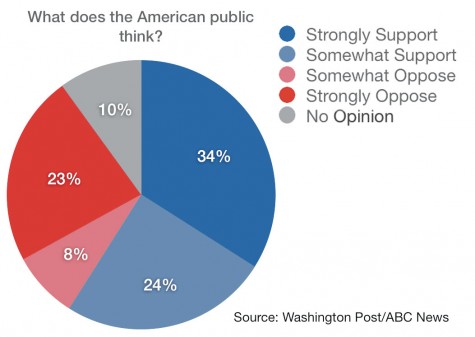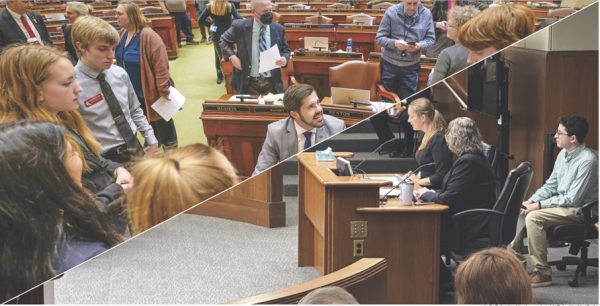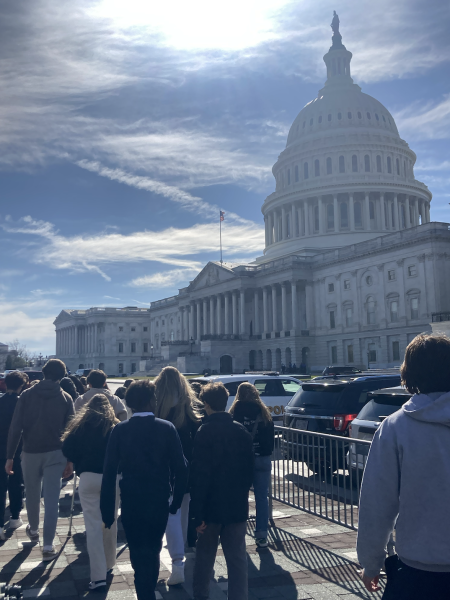Iran nuclear deal divides nation
Student opinions on the controversial treaty
Donald Trump called it “the worst deal [he’s]ever seen.” Bernie Sanders said it “could keep the United States from being drawn into another never-ending war in the Middle East.” Senator Lindsey Graham called it “terrible.” Hillary Clinton said it “puts the lid on Iran’s nuclear programs.” Politicians sure have strong opinions on the Iran nuclear deal, but what do Blake students think?
First, though, we need to establish what the deal does – and doesn’t do. Its official name is the Joint Comprehensive Plan of Action (JCPOA). It was signed in Vienna, Austria, on July 14, 2015, by Iran, the U.S., China, France, Russia, the United Kingdom, Germany, and the European Union. It doesn’t stop Iran’s nuclear program entirely; instead, it requires Iran to give up 97% of its stockpile of enriched uranium and 70% of its nuclear centrifuges (machines used to further enrich uranium to usable levels).
The deal also requires Iran to limit its future uranium enrichment to levels that can only be used in nuclear power plants, not nuclear weapons, and to allow inspectors from the International Atomic Energy Agency (IAEA) access to all of its facilities. In return, the other countries and the E.U. have agreed to phase out economic sanctions on Iran. However, the current arms embargo on Iran has been extended for another five years, meaning Iran won’t be able to use its economic windfall (government-owned businesses were sanctioned as well as private ones) to buy weapons. There are other specific provisions as well, but those are the basics.
“I personally believe the deal is weak for multiple reasons,” says Sam Gelb ‘18. Gelb points out that several of the deal’s provisions, including restrictions on new reactors and continuous surveillance of centrifuge production, only last for 10-15 years. “What happens in year 15?” He says, “Iran is left unregulated with hundreds of billions of dollars.” Gelb compares this deal to when the U.S. tried to negotiate with North Korea on its nuclear program, only to have them test nuclear weapons a few years later. “This deal shares many similarities with that failure,” he says.
Ellie Grossman ‘17 disagrees. “I think people underestimate the degree of Iran’s irrationality,” she says. “By making Iran less of a pariah, and engaging it in diplomatic and economic relations by removing sanctioning…you tie it more deeply to the region and you give it more to lose, which would incentivize them not to do something stupid.”
Plus, she argues, it’s unlikely that Iran would use a nuclear weapon anyway. “The principle of mutually assured destruction” – MAD: the idea that if Iran used a nuke, the attacked country or one of their allies would just attack Iran back – “would make it completely irrational to ever detonate a [nuclear] bomb.”
“It’s a good idea, the thought of it,” says Jack Simermeyer ‘19, “but Obama was too ready to accept whatever [Iran] wanted.” Charlie Alldredge ‘16 argues that “we couldn’t have gotten a better deal” in the current political climate. Lola Chamberlain ‘19 agrees. “It’s better than no deal with them,” she says. “We might as well try to have some control.”
No matter what your view, everyone can agree that the deal is a complex and contentious issue. “I realize that anyone who says they can predict how the deal will go, whether it will be successful or not, is wrong,” says Grossman. “Nobody knows what’s actually going to happen.”











